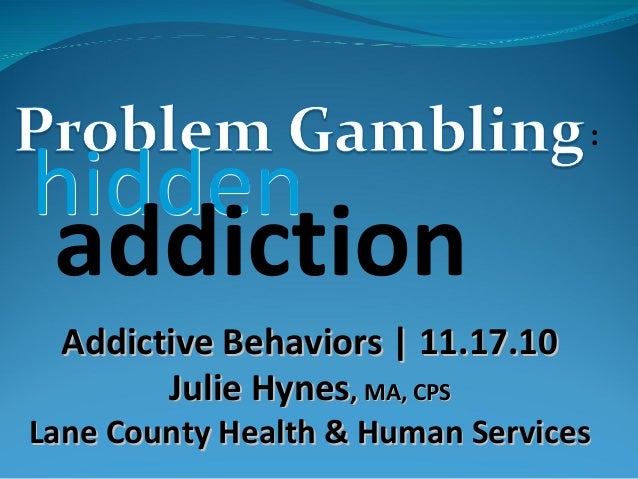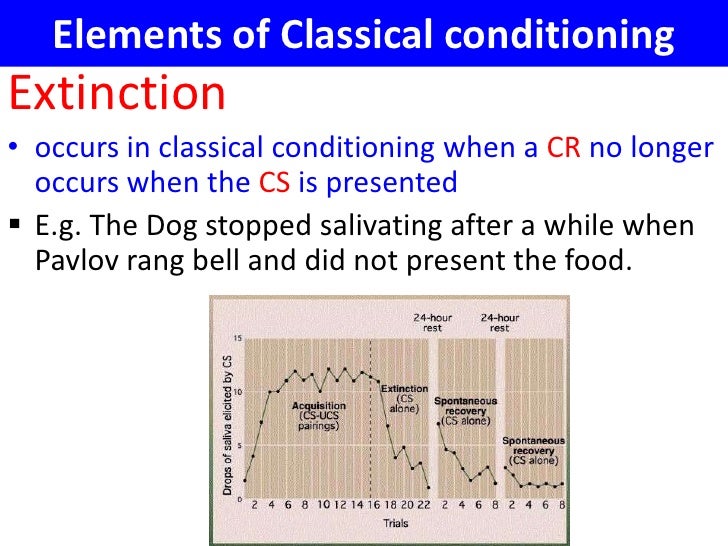Pathological Gambling Experiment
Imagine that you are on vacation, and you go to a casino. Walking in, you notice a few people sitting behind a table with a large poster taped to the front: “SEE XXX PICS OR MAYBE WIN $$$. IT’S FOR SCIENCE.” Intrigued, you stroll over. A seated researcher asks if you want to participate in an experiment and describes the process. First, you would be shown a signal to anticipate one of two rewards: a picture of a naked woman, or a picture of how much money you could win. Next, you were to quickly press a button indicating the signaled reward. If you pressed correctly, you had a chance of being shown the picture or given the money. You participated and found the task simple. The woman was attractive, and it was nice to win money, so you responded equally quickly to both of the signals.
- Pathological Gambling Experiments
- Pathological Gambling Experiment Meaning
- Pathological Gambling Experiment Definition
- Pathological Gambling Experiment Games
Pathological gambling has often been related to an illusion of control, but the assessment of the illusion has generally used introspective methods in domain-specific (i.e., gambling) situations. The illusion of control of pathological gamblers, however, could be a more general problem, affecting other aspects of their daily life. Evidence indicates that pathological gambling is an addiction similar to chemical addiction. Monetary reward in gambling experiment produces brain activation very similar to that observed in drug addicts when they receiving an infusion of the drug. Problem gambling is often associated with increased suicidal ideation and attempts. The current set of three proposed experiments focused on integrating neurological and behavioral levels of analysis in the context of pathological gambling. A thoroughgoing analysis on previous gambling research was explored and discussed in the first four chapters. Specifically, this analysis outlines: similarities between pathological gambling and other substance addictions, new. One of the authors of the study, Trevor Robbins from the University of Cambridge, explained that the rat task was based on an existing clinical experiment called the 'Iowa gambling test'. 'This is a game designed to test decision-making in patients who have suffered damage to the frontal lobes of their brains,' he explained. Pathological gambling caused by excessive. The researchers conducted an experiment on compulsive gambling patients using a standard experimental economics task and a mathematical.
However, pathological gamblers respond differently to this task. In a real study by Guillaume Sescousse and colleagues, the researchers examined how pathological gamblers’ brains anticipated and responded to a reward of money versus a reward that was a picture of a naked woman. These researchers found that pathological gamblers responded faster and were more motivated by the possibility of receiving money than the possibility of seeing the photo. The researchers proposed that this behavior is due to a “motivational hierarchy” in which pathological gamblers want money over other kinds of rewards. This “motivational hierarchy” played an important role when the gamblers anticipated a reward, and the researchers suggest that it could promote gambling addiction. Furthermore, the severity of a gambler’s symptoms can predict how much they prefer money over sex.
The researchers indicated that this hierarchy is both due to pathological gamblers’ becoming more sensitive to anticipating money and less sensitive to anticipating other rewards. Additionally, this finding helps explain prior research showing that pathological gamblers sometimes are not aware of whether they are winning or losing while playing (Nower and Blaszczynski, 2010).

The researchers also found that pathological gamblers responded differently than non-pathological gamblers even after they received a reward. Sescousse and colleagues performed brain scans on their participants after they received the rewards, and the scans of the pathological gamblers indicated that they did not interpret the naked photo “reward” as rewarding. The researchers propose that the definition of a “reward” becomes skewed for pathological gamblers who are highly eager for money and less so for other rewards.
Thus, this research suggests that pathological gamblers pursue money over other kinds of rewards because they find it more intrinsically motivating, and even when they get other kinds of rewards, gamblers do not find them as exciting as money. Unfortunately, these two elements can work together to encourage a gambling addiction.
Eventually, you won money, just like all the real participants did, regardless of performance. Maybe you’ll donate your winnings to future research to seek ways of treating pathological gambling by “resetting” money’s motivational properties. Until then, have fun, and be careful.
References:
Articles: Nower L, Blaszczynski A. Gambling motivations, money-limiting strategies, and precommitment preferences of problem versus non-problem gamblers. J Gambl Stud 2010; 26: 361–72.
Sescousse, G., Barbalat, G., Domenech, P., & Dreher, J.-C. (2013). Imbalance in the sensitivity to different types of rewards in pathological gambling. Brain : a Journal of Neurology, 136(Pt 8), 2527–2538.
Images: [gambling_luck.jpg]. (2014, July). Retrieved from http://www.gamblingaffiliateplace.com/tag/gambling-affiliate-place/
Kathy. (2008, September 8). Reno [Photograph]. Retrieved from https://flic.kr/p/5pD4Aw
- < Previous
- Next >
Home > Graduate School > ETD > DISSERTATIONS > 524
Title
Pathological Gambling Experiments
Author
Date of Award
8-1-2012
Degree Name
Pathological Gambling Experiment Meaning
Doctor of Philosophy
Department
Rehabilitation
First Advisor
Pathological Gambling Experiment Definition
Dixon, Mark
Pathological Gambling Experiment Games
Abstract
The current set of three proposed experiments focused on integrating neurological and behavioral levels of analysis in the context of pathological gambling. A thoroughgoing analysis on previous gambling research was explored and discussed in the first four chapters. Specifically, this analysis outlines: similarities between pathological gambling and other substance addictions, new technological advances (i.e. functional magnetic resonance imaging), verbal behavior in general and its role in pathological gambling specifically, and treatment assessments and interventions. Three experiments were then developed and designed based on the outcomes suggested by the literature review. Experiment I determined the effectiveness of the Gambling Functional Assessment (GFA; Dixon & Johnson, 2007) as a clinically relevant gambling assessment tool. Experiment II also investigated neurological differences between pathological gamblers. Similar to other behavioral and substance addictions, limbic and cortical brain systems are activated during gambling related tasks and activities. However, as gambling pathology increases, brain activation in these regions have been reported to decrease, and it is unclear how pathological gamblers brain activation patterns differ across function maintaining gambling (i.e. attention, escape, sensory, and tangible maintaining functions). Therefore, Experiment II built upon the findings of Experiment I by contrasting brain activation images from the two highest maintaining functions of play, as indicated by the GFA. Concomitantly, Experiment III assessed function based assessment and treatment of pathological gamblers, by comparing brief 30 min exposure to function based or non- function based Acceptance and Commitment Therapy for gamblers. Results from both studies suggested differences in brain activation patterns, yet similarities across subjective closeness to win ratings of the slot machine. Furthermore, brain activation patterns did not change following function based therapy, while subjective ratings in the function based treatment group decreased. Implications for brain-behavior relationships both in a gambling context and in relation to behavior therapy will be discussed.
Share
 COinS
COinSAccess
This dissertation is only available for download to the SIUC community. Current SIUC affiliates may also access this paper off campus by searching Dissertations & Theses @ Southern Illinois University Carbondale from ProQuest. Others should contact the interlibrary loan department of your local library or contact ProQuest's Dissertation Express service.



